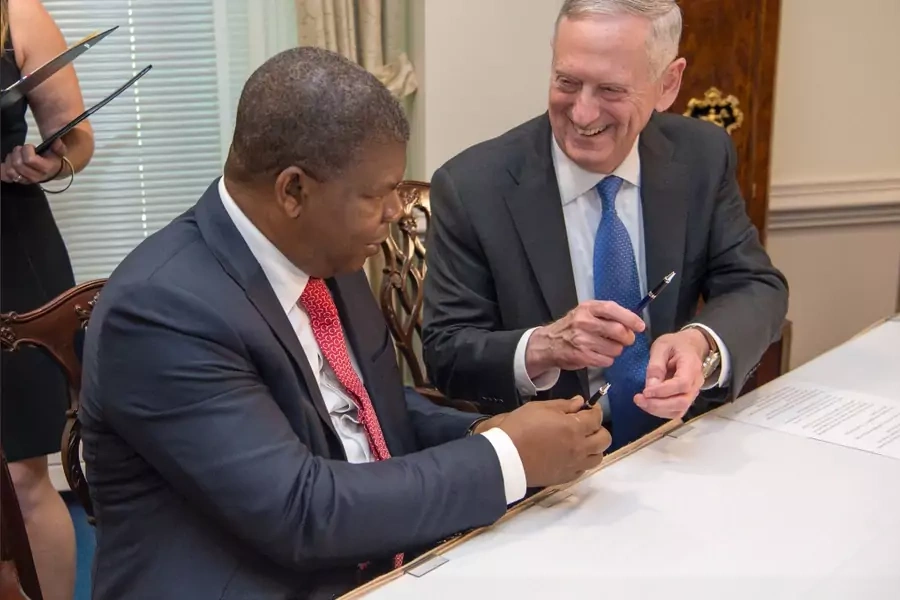Trump Staying the Course with Angola

Rachael Sullivan is a Master of Public Administration candidate at Columbia University School of International and Public Affairs. She is currently a Franklin Williams intern at the Council on Foreign Relations.
After almost thirty-eight years of rule by President José Eduardo dos Santos, Angolans went to the polls today to elect a new president. This change in leadership should be closely watched by not only the continent, but by the United States as well. President Trump still has yet to formulate a coherent policy toward Africa, and many key Africa policy positions remain conspicuously unfilled. Publicly, U.S. policy in Africa seems nonexistent. Toward Angola, however, some continuity can be found within the Department of Defense. In line with previous administrations, the Trump administration announced plans to maintain strong ties with the southern African nation.
More on:
Under the Bush administration in 2006, the U.S. military created the Africa Partnership Station (APS), in an effort to promote security cooperation. APS offers training and assistance to African nations, like Angola, combatting smugglers, traffickers, and extremist groups in the Gulf of Guinea, a critical maritime energy corridor and naval passage for U.S. trade.
In 2009 the Obama administration declared Angola to be one of three strategic African partners (along with Nigeria and South Africa) to the United States. Over the years, Angola has emerged as one of the key players on the continent and a crucial partner for the U.S. It is the second largest producer of crude oil in sub-Saharan Africa, and the third-largest trading partner from the region to the United States. Angola is also a partner to Power Africa, and has signed trade and investment agreements with the U.S.
Under the Obama administration in June 2010, the United States and Angola signed the U.S.-Angola Strategic Partnership Dialogue, renewing focus on bilateral relations and cementing efforts to foster strategic cooperation in energy, trade, democracy promotion, and security. The two countries subsequently established a cooperative working group to focus on Angola’s growing role in African regional security, combatting human trafficking, the destruction of excess munitions, and joint efforts to improve air and maritime security, particularly in the Gulf of Guinea.
U.S. defense policy toward Angola for the Trump administration seems no different. In May 2017, Angola’s defense minister, João Lourenço, and now the leading presidential candidate, visited the U.S. to meet with his American counterpart, Secretary of Defense Jim Mattis. The two signed a Memorandum of Understanding (MOU) acknowledging the strategic security partnership between their respective countries. During the meeting, Secretary Mattis praised Angola for its leadership in central Africa, especially the Democratic Republic of Congo and Burundi. He also recognized Angola for its role as a non-permanent member on the UN Security Council and host of the 2015 International Maritime and Energy Security conference. He identified the MOU as the beginning of a long-term partnership with Angola, particularly on combating piracy in the Gulf of Guinea. The MOU supports the continued training of Angolan security service members in the U.S., as well as English language training and addressing HIV/AIDS within its military.
Lourenço, in an interview with the Washington Post, emphasized the continued importance of the U.S. to Angola. In turn, he says, the U.S. has much to gain from Angola—military cooperation, investment opportunities, and the export of natural resources. Lourenço is likely to become Angola’s next president. His election would maintain the country's defense policy. As Angola undergoes a change in leadership it will be interesting to see just how the Trump administration plans to develop this strategic partnership, especially as its Africa policy begins to materialize.
More on:
 Online Store
Online Store